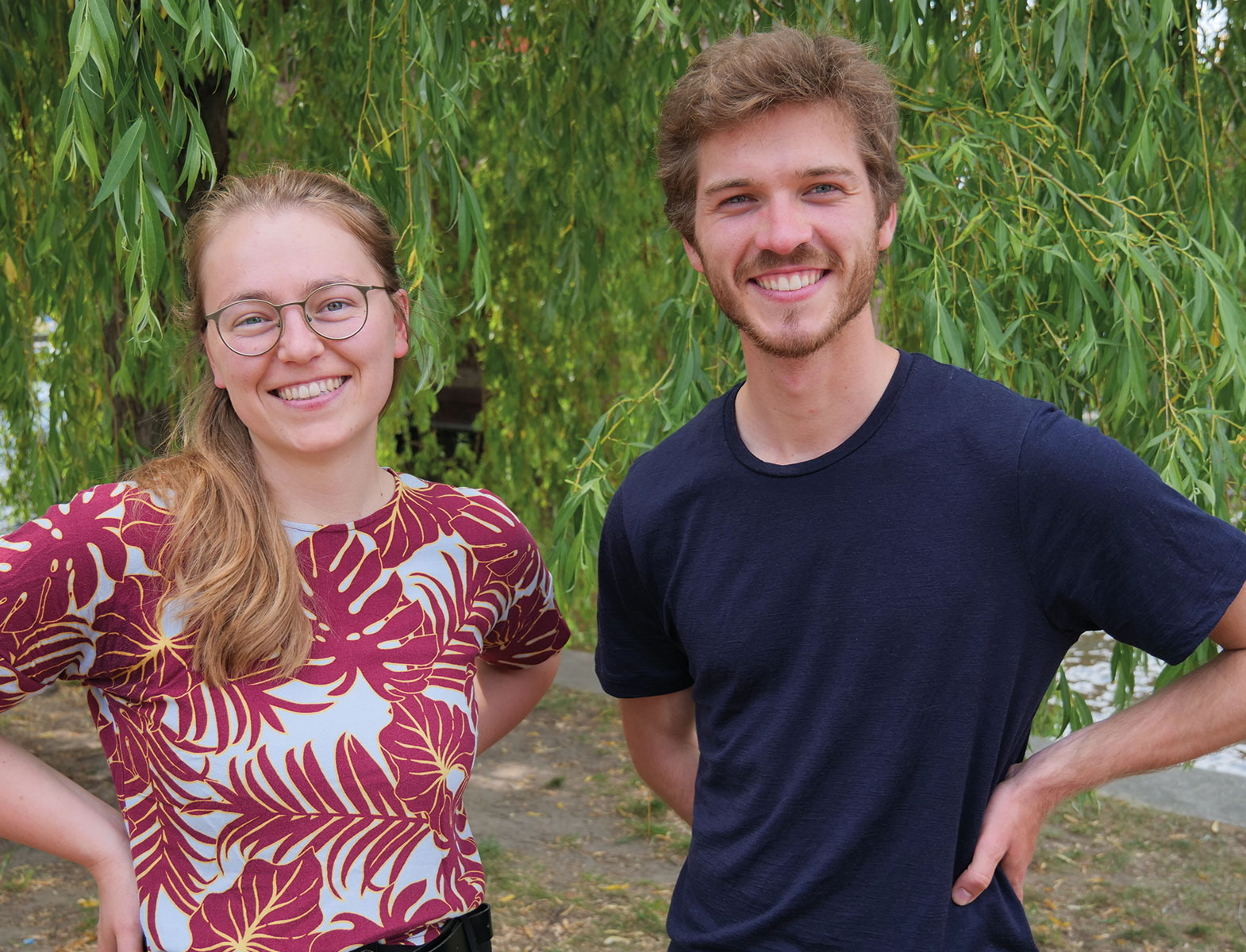You are both part of JuFoNa – the Brandenburg youth forum for sustainability. What are the forum’s goals and areas of focus?
Our goal is to provide a platform for young Brandenburgers to engage with state politics in Brandenburg – and to mediate between the two worlds. With this in mind, we do a lot of network-building at state level. And we also network with young people in Brandenburg and empower them to get involved in political processes. In terms of content, we always focus on issues related to climate change and all aspects of sustainability. For Brandenburg, this is mainly about pressing ahead with the phase-out of coal and developing ideas for transforming rural transport. The social dimension is important to us in all our activities. When it comes to the major challenge of addressing climate change, no one can be left behind. This means that the wealthy sectors of society must bear the brunt of the transformation.
In Brandenburg, the state government is developing a climate plan involving a wide range of stakeholders. How are you ensuring JuFoNa and young people’s perspectives are included in the process?
In consultation with the Environment Ministry (MLUK), we organized a youth workshop on the climate plan in November 2021, which was attended by over 50 young Brandenburgers. Then we fed the results of the youth workshop into the official expert workshops. We also supported the climate plan process through social media, email campaigns, an open letter, a joint state press conference with other stakeholders, a number of speeches at climate strikes across the state of Brandenburg, and a detailed report on our experiences and positions.
Our position has always been that Brandenburg has to finally start taking climate action seriously and that we need much more ambitious targets in order to comply with the Paris Agreement. Most importantly, the state government should not only report on annual figures and set reduction targets, but also determine the total remaining budget for greenhouse gas emissions in Brandenburg. But more advocacy is needed in this area.
On 8 March 2023, the scientific report on the climate plan was published, which included two climate neutral scenarios and recommendations for a Brandenburg climate strategy. Which of the proposed measures do you think are particularly relevant for the entire Berlin-Brandenburg metropolitan region?
Overall, we were very pleased with the report. It contains many useful measures and, most importantly, a good description of the problem. We also very much support the recommendation to pursue the electrification scenario, which uses significantly less hydrogen. The major task now is to incorporate the many good proposals into the climate plan and then implement them.
For the Brandenburg metropolitan region, it is important to coordinate effectively on transforming the transport sector, expanding renewable energies, and organizing agriculture and food. Berlin depends on food and renewable electricity from Brandenburg. Brandenburg, on the other hand, has the land to meet much of this demand – if used wisely – but it must also benefit from the provision of land. It is also important that Berlin does everything it can to exploit its own potential for energy production so as not to further exacerbate the land-use conflicts that are emerging in Brandenburg. Regarding transport, the main focus is on getting commuter and freight traffic onto the railways and strengthening interconnections in Brandenburg.
One thing is clear: working together, Berlin and Brandenburg have the potential to create the structures needed for zero emissions.
The interview was conducted in June 2023.
Picture: JuFoNa


